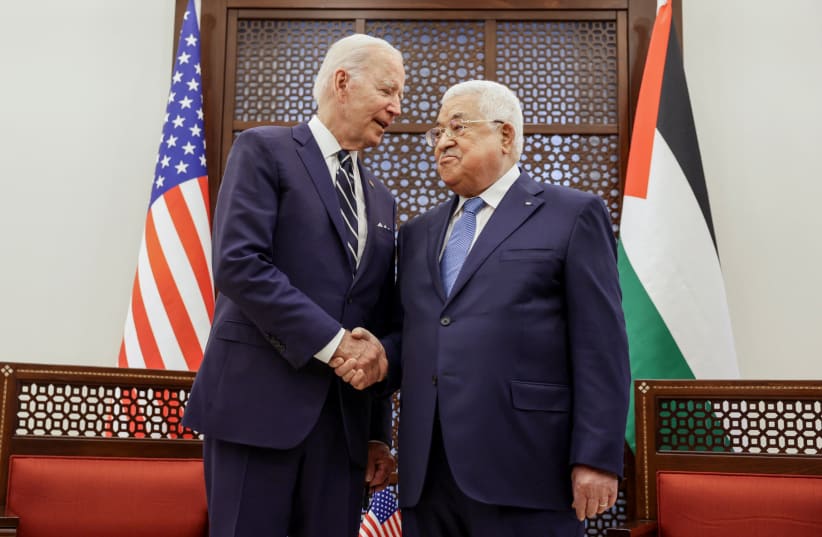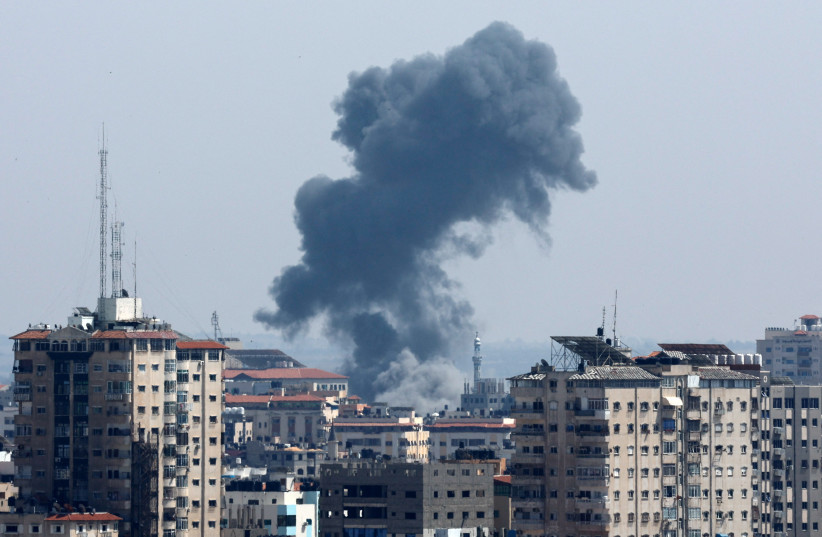The US administration bears responsibility for the deterioration of the situation in the West Bank and Gaza Strip, the PA said on Saturday, in what some Palestinians see as a sign of a looming crisis between Ramallah and Washington.
Relations between the Palestinian Authority and the US were strained under the administration of former US president Donald Trump, who enraged the Palestinians by cutting off financial aid to the United Nations Relief and Work Agency for Palestine Refugees, moving the US Embassy from Tel Aviv to Jerusalem and recognizing Jerusalem as Israel’s capital.
The Biden administration, however, has over the past two years sought to improve its relations with the PA by resuming financial aid and appointing senior State Department official Hady Amr as a special envoy to the Palestinians. Amr and other senior US officials have been holding meetings with senior PA officials in Ramallah almost on a regular basis.
Despite the rapprochement, Palestinian officials have on a number of occasions voiced disappointment with the Biden administration for failing to fulfill its promises to the Palestinians, including reopening the US consulate in Jerusalem and the PLO diplomatic mission in Washington, both of which were closed by the Trump administration.
The officials have also taken the Biden administration to task for failing to exert pressure on Israel to halt its “unilateral” measures, including settlement construction and counterterrorism measures, especially in the West Bank.
On Saturday, PA presidential spokesman Nabil Abu Rudaineh, responding to the latest round of fighting between Israel and Islamic Jihad and the killing of two Palestinians during a raid on Balata refugee camp near Nablus, chose to point an accusing finger not only at Israel, but the Biden administration as well.
Statements issued by Abu Rudaineh and other senior Ramallah-based officials often call on the US administration to immediately intervene and put pressure on Israel to halt its policies and measures.
“The American administration also bears responsibility for the deterioration of the situation because of its silence over Israeli crimes and failure to stop them,” Abu Rudaineh said. The US inaction, he said, has allowed Israel to continue its “aggression” on the Palestinians.
The PA official’s rebuke of the Biden administration was echoed by another senior official in Ramallah, who told The Jerusalem Post: “Biden has not fulfilled most of the promises he made to the Palestinians before and after the US presidential election. Now that he has announced his decision to seek reelection, we don’t expect him to do anything to help the Palestinians or put pressure on Israel.”
Another Palestinian official said: “We hear nice statements from the Biden administration, but they have proved that they are not much different than previous American administrations that were biased in favor of Israel.”
Palestinian Authority has no influence on the Gaza Strip
As in previous rounds of fighting in the Gaza Strip, the current face-off between Israel and Islamic Jihad underscores the irrelevance of the Ramallah-based Palestinian leadership. Since losing control of the Gaza Strip to Hamas in 2007, the PA has had almost no say in events taking place inside the coastal enclave, including several ceasefires reached between Israel and the Palestinian factions.
The PA leadership has also been excluded from the current efforts by Egypt, Qatar and the UN to reach another ceasefire.
Since the beginning of the latest conflict, PA President Mahmoud Abbas and senior Palestinian officials in Ramallah have come under attack by many Palestinians for allegedly acting as if the war was in another country, not an area inhabited by two million Palestinians.
One day after the Israel-Islamic Jihad confrontation erupted, Abbas headed to Jordan, where he stayed for a few days before flying to New York, where he is scheduled to participate in an event at the UN marking the Nakba (catastrophe, the term Palestinians use to describe the establishment of Israel 75 years ago).
As of Saturday night, Abbas has not made any public appearances to comment on the fighting between Israel and Islamic Jihad, drawing harsh criticism from his political rivals and critics.
PLO Executive Committee Secretary-General Hussein al-Sheikh, widely considered heir apparent to the PA president, flew last week to Moscow, where he met with Russian Foreign Minister Sergey Lavrov and his deputy, Mikhail Bogdanov. In a statement after the meeting, Sheikh made no reference to the fighting between Israel and Islamic Jihad.
Only on Friday did Sheikh comment on the situation in the Gaza Strip when he wrote on Twitter: “In the midst of this continuous aggression against our people in the Gaza Strip and the rest of the country, we call on the US, the international community and our Arab brothers to put pressure on the occupation authorities to immediately stop the aggression.”

